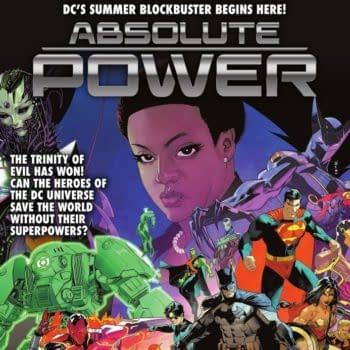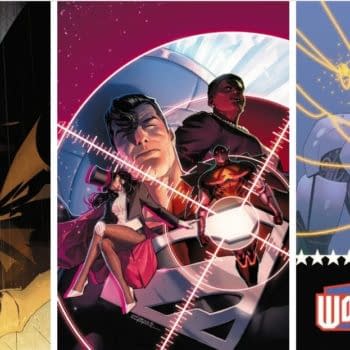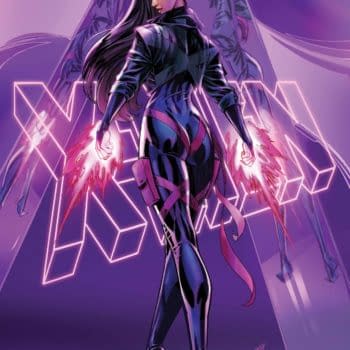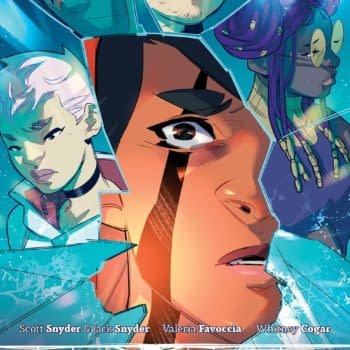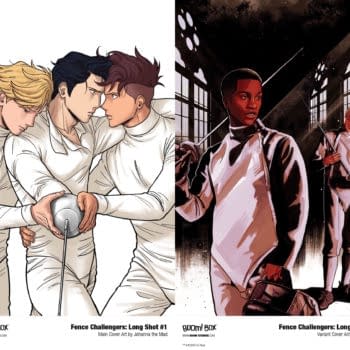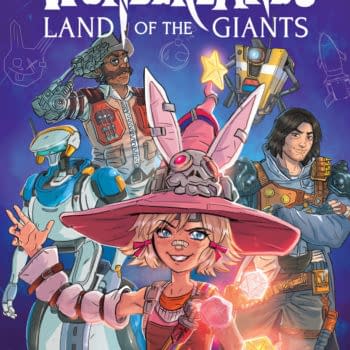Posted in: Comics | Tagged: Comics, HRL
Celebrating Over 100 Years Of Women In Comics At New York Comic Con
John Odum wrote from New York Comic Con 2017:
This panel, celebrating the long influence of women in comics — both as creators and consumers — was a terrific history lesson. Noting that comics were just one form of sequential art, participants noted the contributions of women going well back before the advent of Superman and Batman.
Grace Drayton (of Campbell Soup kids fame) was doing strips such as Toodles, Pussy Pumpkins, Dolly Dimples, and The Pussycat Princess in the mid-'30s. Cartoonists such as Mary Carew have fallen almost entirely out of the historical record.
In terms of more recent history, letterer Janice Chiang, who has worked with every company in the biz and with a career spanning four decades, participated in the panel. Moderator Amy Chu (Red Sonja, Poison Ivy) added, "Any comic you pick up has been lettered by Janice at some point." Chiang spoke out not just on behalf of women, but of the power of the medium to impact lives. She stated that working to give people a vision of a better future "is our job as cultural warriors."
As a sidebar, Chiang also repeated the charge that her lettering style had been "plagiarized" by having her distinctive (and recognizable) style digitized and put into distribution. Although she didn't name names, she is likely referring to Malibu Comics (at least in part). She has made that charge explicitly before.
Karen Green (Columbia University Curator for Comics & Cartoons) and Eisner Award-winner Dr. Sheena Howard (Superb, Black Comics: Politics of Race and Representation) were on hand, noting that the academic study of comics has (finally) become more respectable. In that context, Green explained how the comics audience — which had previously been made up primarily of women — changed with the dominance of superheroes.
Howard reminded the crowd that comics are about much more than superheroes, noting that women and girls used to make up more than 50% of comics readers "before superheroes really crowded out a lot of the other types of comics in the '60s." To emphasize the point, Chu noted that comics had become so singularly focused that comic shops are not organized by subject, as bookstores are, but by publisher, because the subjects are so uniform.
Interestingly, and perhaps ironically, Green noted: "Romance comics were killed by women's liberation, essentially."
The panelists related their own stories of struggling to be taken seriously in an industry — and a medium — that has become so identified with men. Often the resistance they encountered was based on cluelessness rather than outright malice.
To Chu, this underscored the need for women professionals in the industry to be persistent:
"You're going to get interrupted. You're going to find you're the only woman in the room — you've got to be tactical about that."
Green encouraged aspiring female creators to keep trying, self-publish, and promote their work over social media. "Make it so that [the readers are] coming to you. Build your own audience."
The panel also noted that She Makes Comics, a documentary on women in the industry that features a couple of the panelists, would be available on Amazon and Netflix later this month.







